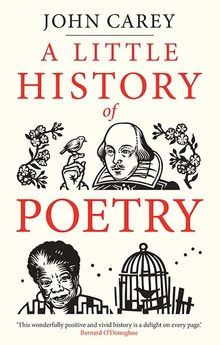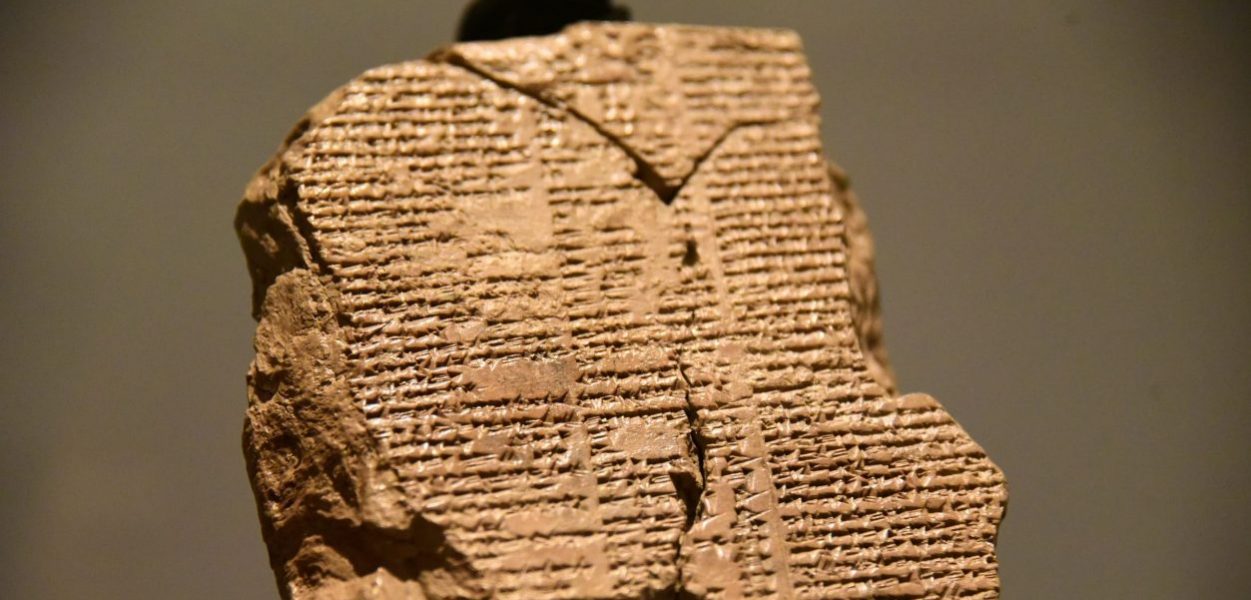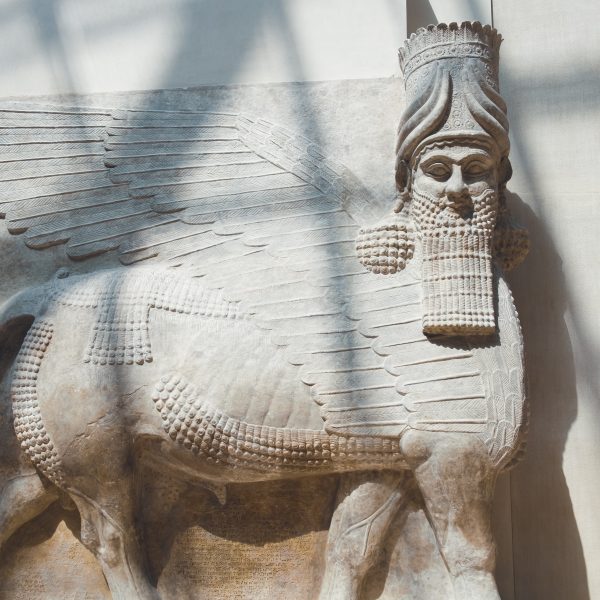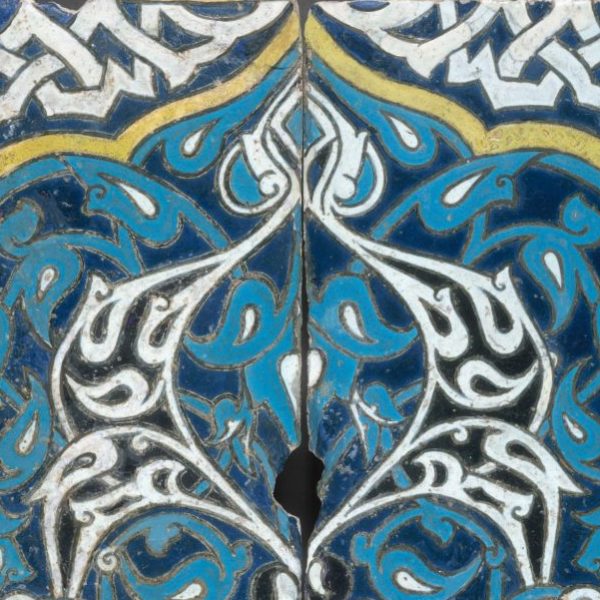The Epic of Gilgamesh
John Carey—
The oldest surviving literary work is The Epic of Gilgamesh. It was composed nearly 4,000 years ago in ancient Mesopotamia (roughly equivalent to where Iraq and eastern Syria are now). No one knows who wrote it, or why, or what readership or audience it was intended for. It is preserved on clay tablets in the earliest known alphabet, which is called cuneiform script because the scribes who wrote it formed the letters by making wedge-shaped (cuneiform) dents in wet clay with bits of reed.
For centuries the secret of how to read cuneiform script was lost. Then, in the 1870s, a self-taught, working-class Londoner called George Smith, studying clay tablets in the British Museum, cracked the code and brought The Epic of Gilgamesh to light.
The epic tells the story of a king, Gilgamesh, whose mother is a goddess. He rules the city of Uruk (now Warka in southern Iraq). He is a great warrior and builds a magnificent city using glazed bricks, a new technique. But he is lustful and tyrannical, seizing and violating brides on their wedding day. So the gods create a wild man called Enkidu to stop Gilgamesh oppressing his people.
Enkidu is made from the clay the mother goddess washes from her hands, and he is an animal rather than a human. He is covered in hair and lives with the gazelles, eating grass as they do. However, a votaress of the temple in Uruk seduces him and after seven days and nights of fervent love-making he becomes human. She teaches him to wear clothes and eat human food.
Gilgamesh falls in love with Enkidu, caressing him like a woman. But when Enkidu tries to stop him violating brides, they fight. They turn out to be equally matched, so they kiss and make friends and embark on heroic adventures. Together they go on a quest to the Cedar Forest and kill the monster Humbaba who lives there. This angers the gods, since Humbaba was their monster. While Gilgamesh is washing after the fight the goddess Ishtar sees him, falls in love, and proposes marriage. But she is the goddess of sex and violence and all her lovers come to a bad end, so Gilgamesh rejects her. She is angry, and calls on her father, the sky god, to send another monster, the Bull of Heaven, to kill Gilgamesh. Instead Gilgamesh and Enkidu kill the Bull, which angers the gods still more, and they sentence Enkidu to death.
Gilgamesh mourns him bitterly and sets off to discover the secret of eternal life. He is ferried across the waters of death and finds the immortal man Utnapishtim, who survived the great flood, in which all other humans died, by following the gods’ instructions and building a boat. Gilgamesh dives into the ocean to find a plant that is said to make whoever possesses it young again. Though he finds it, and brings it to the surface, it is stolen by a snake, and Utnapishtim tells him that no one can defeat death. So Gilgamesh returns to Uruk, having learned that, though he is mighty and famous, he will be equal in death with all other human beings.
From A Little History of Poetry by John Carey. Published by Yale University Press in 2020. Reproduced with permission.
John Carey is emeritus professor at Oxford. His books include The Essential “Paradise Lost,” What Good Are the Arts?, studies of Donne and Dickens, and a biography of William Golding. The Unexpected Professor, his memoir, was a Sunday Times best-seller.
Further Reading:



























